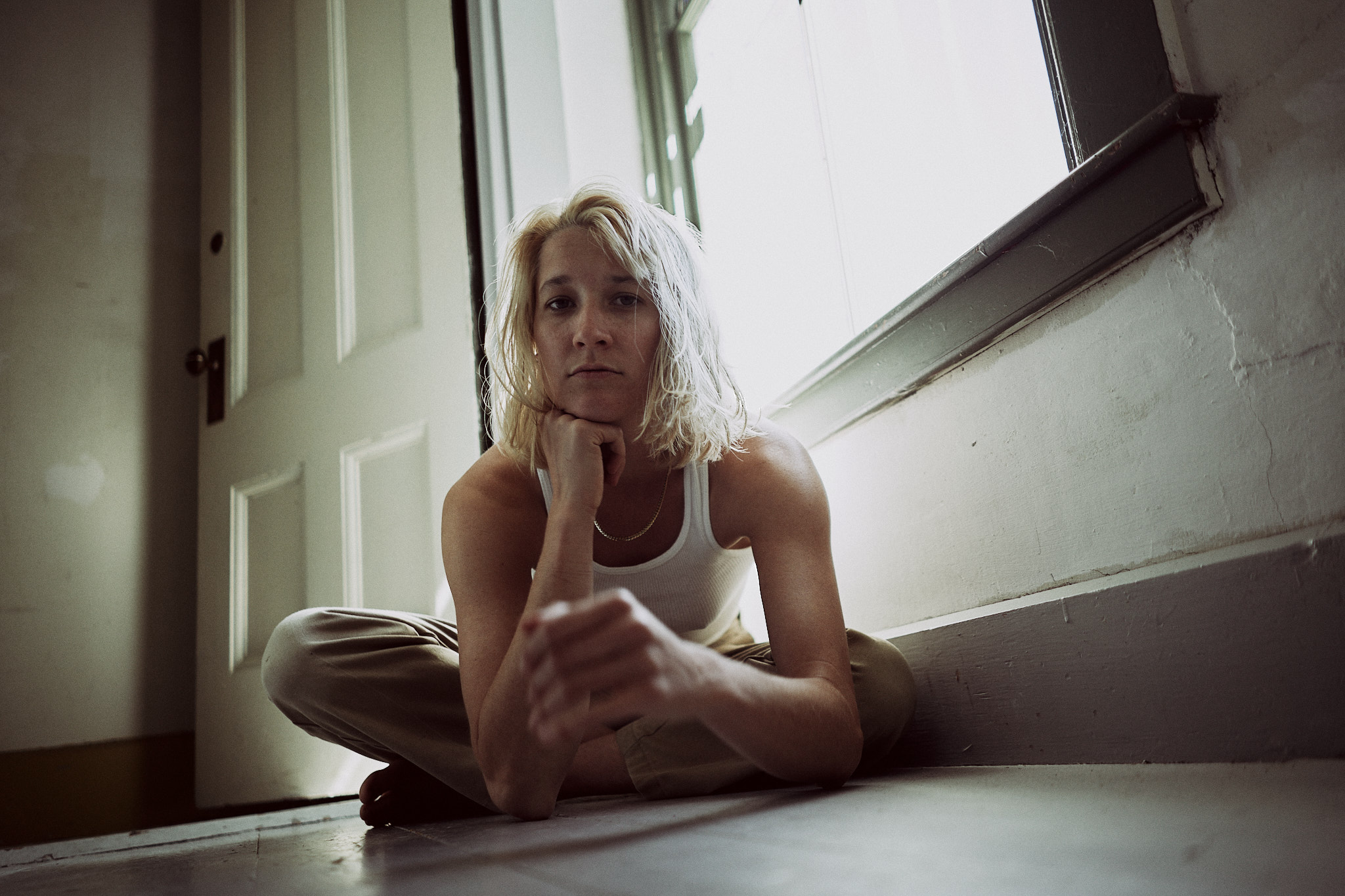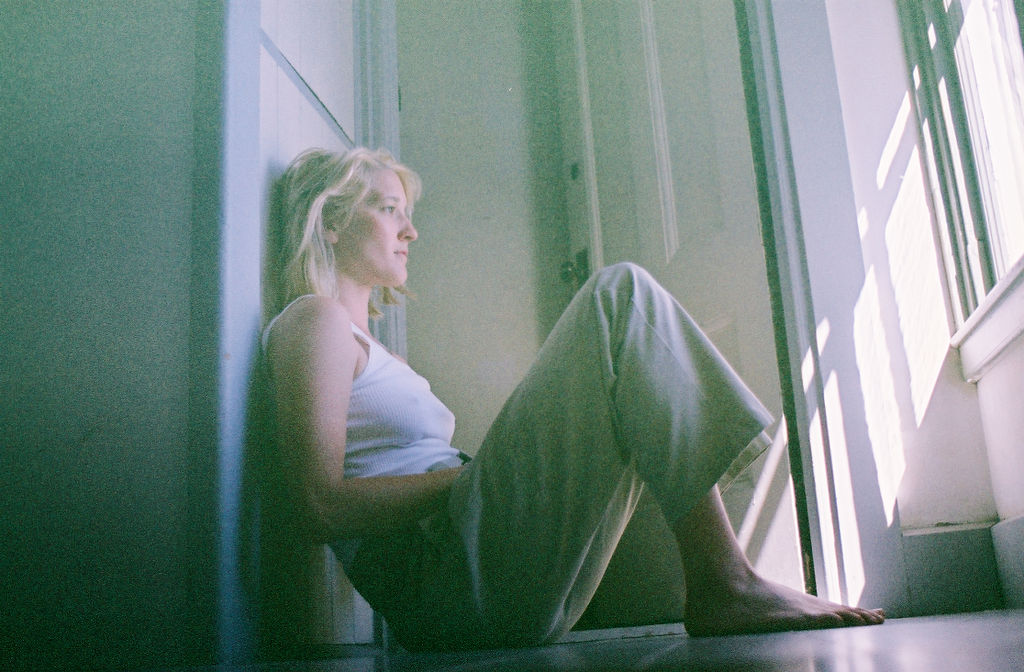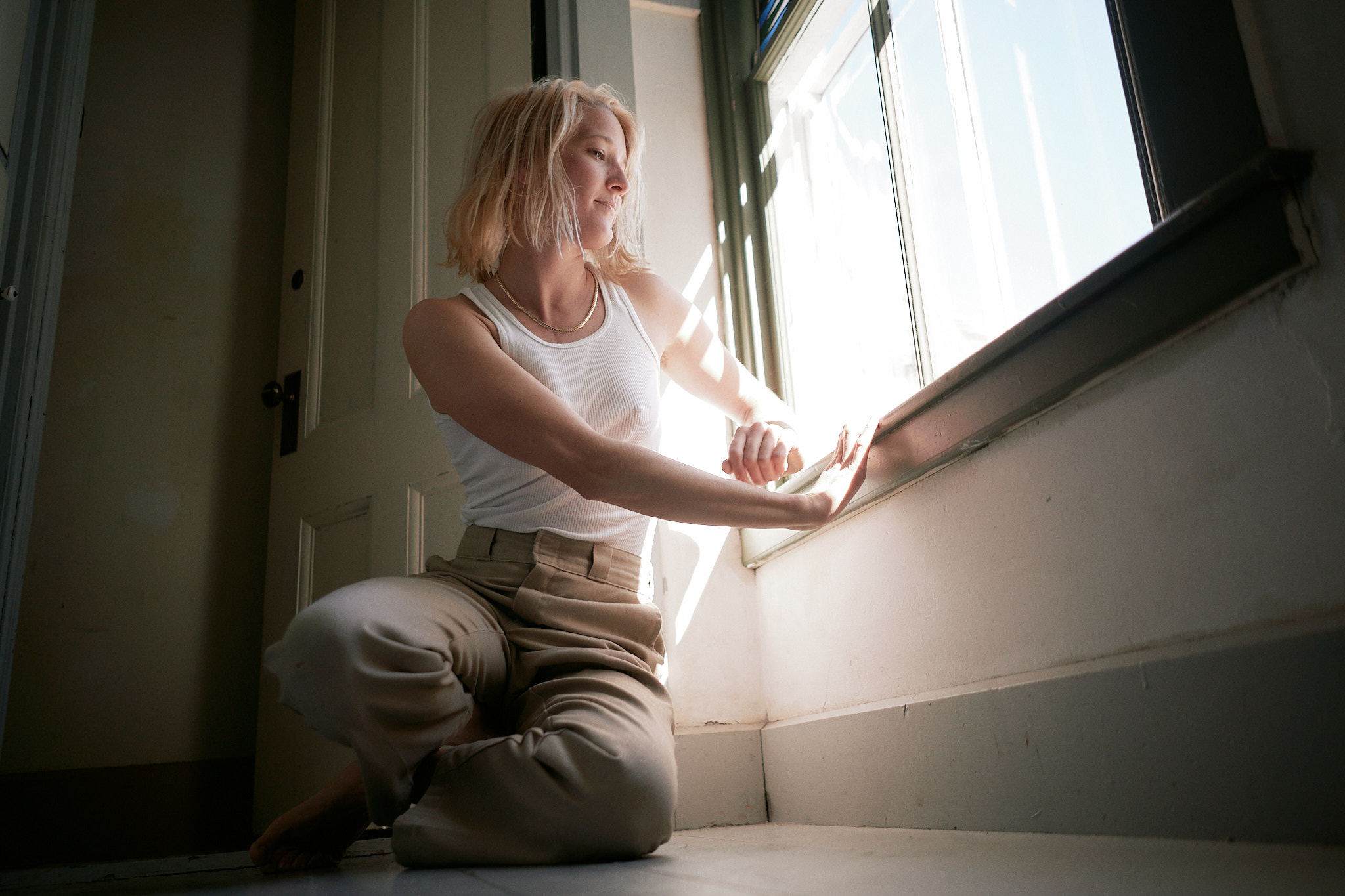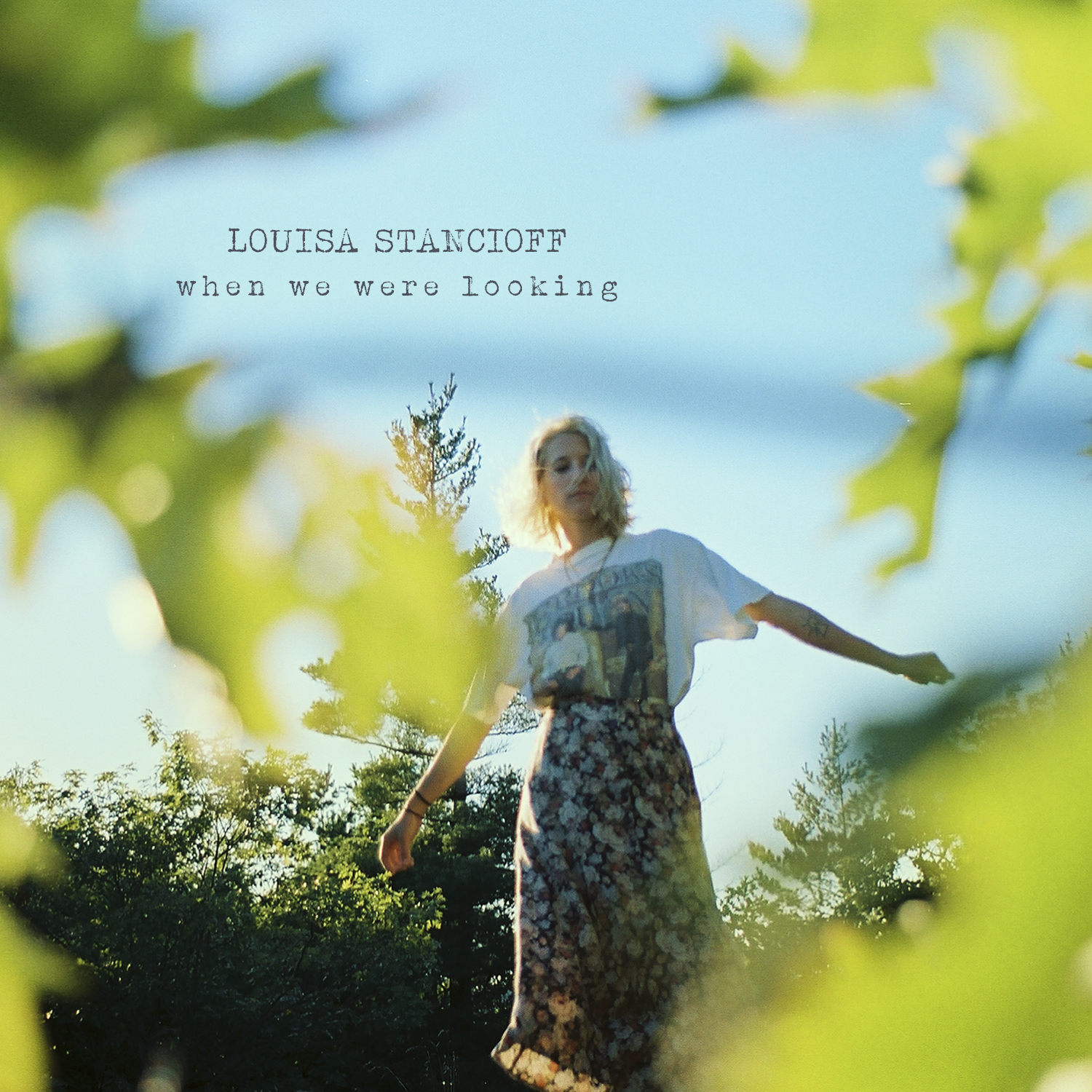Louisa Stancioff
When We Were Looking out 4/12/24 (Yep Roc Records)
“There are times in life when you’re so present, so fully immersed in the moment that you can catch a glimpse of another universe, of a realm beyond our own,” says Louisa Stancioff. “It might last for a second or an hour, it might come in the midst of bliss or sadness, you might be alone or with a lover, but when it happens, there’s nothing quite like it.”
When We Were Looking, Stancioff’s stunning debut, is full of those moments. Written and recorded through a transitional, transient period filled with heartbreak and uncertainty, the collection is raw and unflinching, holding nothing back in its bittersweet reckonings with pain, healing, acceptance, and growth. Stancioff writes with a cinematic eye, conjuring up richly detailed stagings for her emotionally-charged character studies sung with a silvery resonance. The songs’ guitar-and-synth-focused arrangements are immersive and nuanced to match, thanks in part to the evocative sonic landscaping of producer/keyboardist Sam Kassirer (Josh Ritter, Craig Finn), who proves to be an ideal creative foil on the record. Add it all up and you’ve got a dreamy, nostalgic, snapshot-filled album that blurs the lines between indie stoicism and folk sincerity–a lush, cathartic work that hints at everything from Phoebe Bridgers and Arlo Parks to Big Thief and Waxahatchee as it learns to find the beauty in grief and rebirth.
“I was pretty lost and confused when I was writing these songs,” Stancioff confesses. “The album was a way for me to process everything I was going through, a way to finally close the door and move on from some of the feelings that had been consuming me so intensely. It was a way to find a lot of beauty in those emotions. That’s why it’s called When We Were Looking–the idea of taking a pause to see what’s beautiful in front of you even when it’s dark, peeking into something bigger in those little moments.”
For Stancioff, music has always been a natural outlet. Born and raised in rural Maine, she learned traditional Bulgarian tunes from her paternal grandfather’s side of the family and reveled in singing American folk and roots songs with her friends. She picked up piano and fiddle during her elementary and high school years, and in college, she launched a band with her cousin Matt called Dyado (a play on “Diado,” which means grandfather in Bulgarian). Based first out of upstate New York and then later calling Asheville, NC, home, the pair crisscrossed the US on tour for nearly three years without ever staying in a hotel, camping and couch surfing their way around the country until 2020, when Stancioff decided to strike out on her own. “When I left Asheville, it also marked the end of a complicated romantic relationship I’d been in for a while,” Stancioff explains. “It was time for me to move on, and I knew the only way I could truly do that was to leave North Carolina altogether."
What followed was a nomadic series of moves and odd jobs as Stancioff road tripped her way around the country in search of sturdy ground to stand on. She worked on farms in Alaska, assisted a director on a TV series in Hollywood, took shifts at a grocery store in Echo Park, and picked apples at an orchard in Maine. All the while she continued to teach herself guitar and write, with inspiration often striking in the car as she bounced from one location to the next, never quite sure where she’d wind up. “I could never stay in any one place for too long,” says Stancioff, who imbues her music with an unsettled sense of perpetual motion. “I knew I wanted to end up back in Maine someday, but I just had this wanderlust that kept me going.”
That all changed when she met Kassirer at one of her first solo shows. “When I learned about Sam’s studio, it was like, ‘Oh my God there’s a place I can make the kind of record I want to make without leaving Maine?!’” Stancioff recalls. “And then shortly after that, I met my future bandmates, Dave and Dan Kelly, and I realized that something about this place was telling me I needed to stay.”
Putting down roots for the first time in her adult life, Stancioff moved into her late grandfather’s house and began working with Kassirer at the Great North Sound Society, a 1700s farmhouse he’d converted into a studio in rural Parsonsfield. The sessions were loose and collaborative, often featuring just the two of them playing every instrument, and what started as a few singles quickly turned into a full-length LP.
The duo’s natural creative chemistry is easy to hear on When We Were Looking, which opens with the spare “Gold.” Warm and hazy, the song grapples with the sadness of drifting apart from a loved one in a way that feels achingly permanent. “I know you said you’re sorry / I know you said you’re gold,” Stancioff sings with a gentle insistence. “I know you want it to align with everything you told.” Like much of the album, the song begins mid-scene, foregoing the tidiness of a defined beginning or ending in favor of a brief, vivid snapshot that comes and goes without any clear answers. The airy “All Fuck’d Up” captures its narrator in a moment of quiet desperation, while the smoldering “Cigarette” revisits an old wound only to find the hurt is still fresh. “Seams,” the ethereal penultimate track, muses on the notion of closure. “I picked up sewing as a bit of a hobby during the lockdown, and I had to use this big, thick needle because I was making a backpack out of heavy canvas,” Stancioff recalls. “At the same time, I found myself getting into a new romance, and I realized that the way I kept accidentally poking myself and bleeding while trying to stitch things together felt like a metaphor for the whole experience.”
Even at its most melancholy, When We Were Looking still manages to exude a sense of resilience and determination that refuses to give in. The lilting “Nobody’s Watching” stands firm in the face of greed and selfishness; the mournful “Emma” finds relief in burning a long-overdue bridge; and the tender album closer “End Of Your Song” makes peace with the things we can’t know or control as Stancioff sings: “I still haven’t found the end of your song / It feels like it’s missing a part / And I know we could talk for the rest of the night / But I won’t let my thoughts keep you up again.” “Sometimes you want to say so much more than you can to a person,” she explains. “And then sometimes you’re on the same wavelength with someone and you don’t even need to say any words at all.”
It’s in moments like these we can glimpse something truly transcendent, something beyond our physical bodies, something beyond language and knowledge. It’s there if we want it; we just have to be looking.






